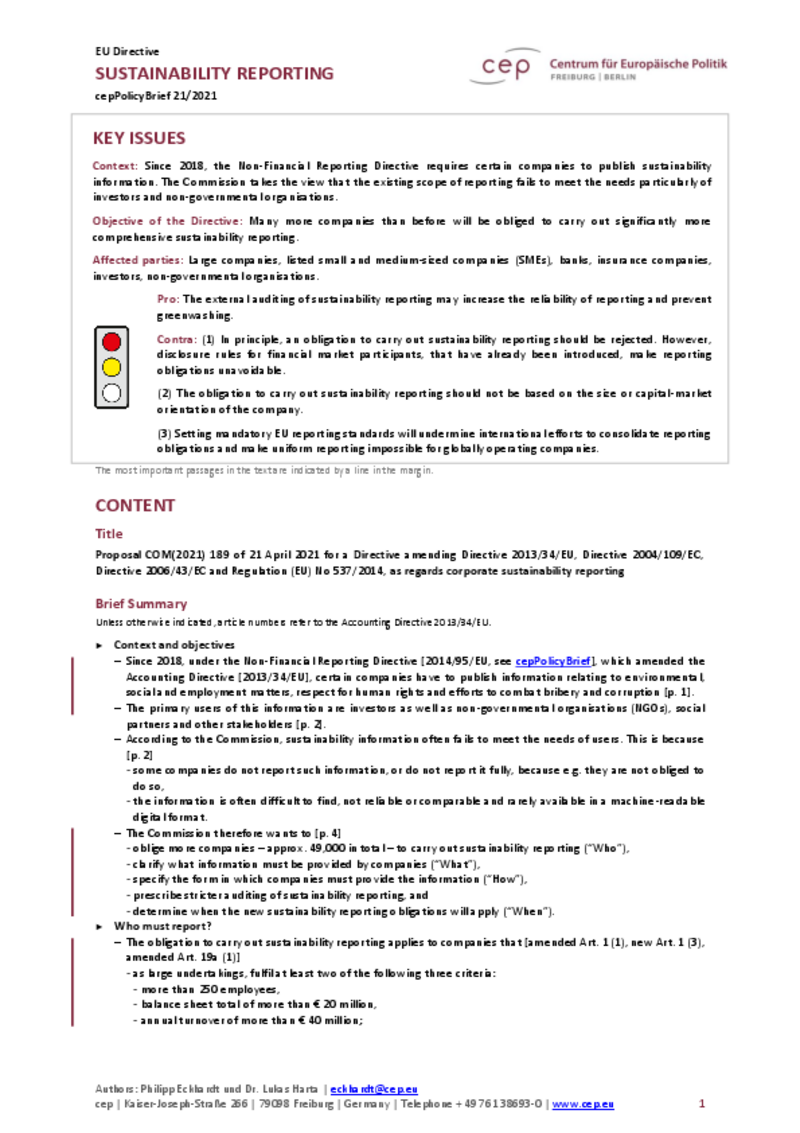
Financial Markets
Sustainability Reporting (cepPolicyBrief COM2021 189)
cepPolicyBrief
"The more extensive sustainability reporting obligations should be rejected," says cep financial market expert Philipp Eckhardt, who wrote the cepPolicyBrief. It is true that annual non-financial reporting is unavoidable, as some investors are dependent on additional and more detailed information. "From a regulatory point of view, however, the reporting requirements on environmental, social and employee issues or even on the fight against corruption should be rejected," says the cep expert.
According to Eckhardt, companies have a vested interest in providing this information if they want to access capital more easily. "However, if a company does not disclose, it signals that the costs of reporting exceed the benefits. If investors are not interested in sustainability information, the reporting obligation leads to excessive bureaucracy without any significant benefit," Eckhardt emphasises.
In his view, the obligation to report on sustainability should also not depend on the size of the company. For this would lead to distortions of competition, as some companies would have to bear costs that would not be imposed on others. "It is not said that large companies necessarily act less sustainably than small companies," says the cep expert.
The fact that in future there will no longer be a distinction between financial and non-financial information is a milestone in the Commission's view. The Member States are to transpose the requirements into national law by the end of 2022.
The reporting obligation is to apply to sustainability reports published from 1 January 2024. They would thus already affect the reporting period for 2023. cep expert Eckhardt considers this timetable too ambitious.
According to Eckhardt, the changes would be a challenge especially for companies that have not yet been subject to the reporting and auditing requirements. This is because they have neither experience in non-financial reporting nor have they had any contact with the auditing of sustainability information so far.
Download PDF
| Sustainability Reporting (cepPolicyBrief COM2021 189) (publ. 09.21.2021) | 205 KB | Download | |
 | |||



